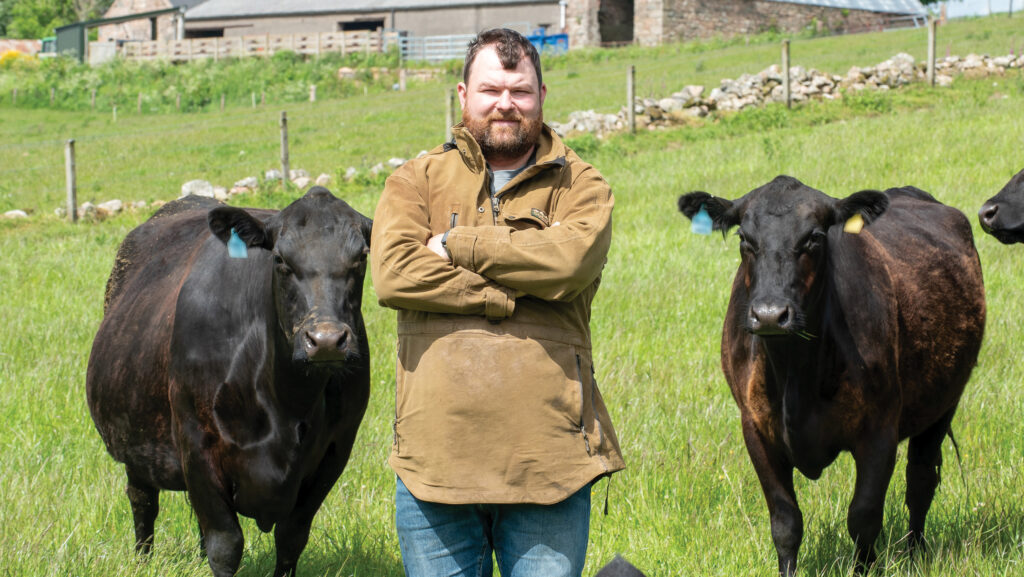Farmer Focus: Time to simplify while beef trade is strong
 Duncan Morrison © Angus Findlay
Duncan Morrison © Angus Findlay It wouldn’t be a Scottish spring without sleet and snow. We had a couple of weeks of “fool’s spring” in early March before reality set in again.
The brief period of nice weather whetted the appetite, though, and I’m looking for more.
See also: Suckler business lifts margin £353/ha with fewer cows
It has been a busy month. We have been improving infrastructure on farm: upgrading mains electric fencing, replacing boundary fences, setting up new paddocks and water troughs, and planning changes ahead of the upcoming grazing season.
I must be a bit sad, but I find this kind of stuff quite exciting.
The beef trade is as buoyant as it has ever been. It is great to see folks being rewarded – and the confidence to invest that comes with that.
I have spoken to several people recently who are thinking about establishing new suckler herds, so I hope that current trade starts to turn the tide a little on the decline of this sector.
We are lifting numbers every year – as much as we are able to – because we genuinely think there is a great future in suckler cows.
Having said that, the industry is still negotiating turbulent times, with many other pressures such as Schmallenberg, TB and bluetongue, not to mention whatever happens politically.
I think now is an important time to take stock and make sure our businesses are as resilient as possible.
My fear is that inherently inefficient systems that have been struggling on for years will suddenly feel vindicated, now that prices have risen, only to be sucker-punched again at a later date when the inevitable happens.
Now might be an ideal time to implement simpler, more streamlined, and labour-efficient systems, while the exceptional values can help cushion change.
I think back to reading New Zealand farmer Doug Avery’s book The Resilient Farmer. During a severe drought, the only thing he thought he could do was to (hopelessly) wish for rain.
It wasn’t until he discovered the benefits of lucerne and its ability to cope with drought, ramp up livestock growth rates and fix nitrogen, that he realised he could influence how his farm dealt with drought.
His business then kicked on to a whole new level.
These high prices we are experiencing are maybe the “rain” we were wishing for, but not the “lucerne” we need.

